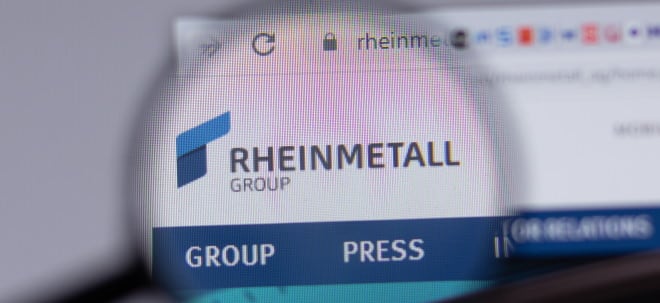Creyos Featured in Alzheimer's Research at AAIC 2025
- Findings from Western University, QIMR Berghofer, and Rotman Research Institute underscore the power of Creyos in detecting early risk, validating digital testing, and uncovering markers of cognitive resilience.
- Used in over 400 peer-reviewed studies, Creyos continues to power cutting-edge brain health research around the world.
TORONTO, July 29, 2025 /PRNewswire/ -- Creyos, the digital platform trusted by clinicians and researchers to assess brain health with precision and ease, was featured in three independent research presentations at the 2025 Alzheimer's Association International Conference (AAIC). The studies demonstrate how Creyos is helping researchers advance the science of early detection, understand risk, and explore what protects cognitive health as we age.
Built on more than 30 years of neuroscience research and validated in over 400 peer-reviewed studies, Creyos enables fast, reliable measurement of key cognitive domains—including memory, attention, reasoning, and executive function. For decades, leading research institutions have leveraged the platform to explore large-scale questions that demand high-quality, scientifically reliable data, with three notable studies chosen for presentation at AAIC this year.
"Creyos wasn't born in a boardroom—it came out of necessity in the lab," said Adrian Owen, Professor of Cognitive Neuroscience and Imaging at the University of Western Ontario, Chief Scientific Officer at Creyos, and co-author of one of the featured AAIC posters. "It started as a way to solve a problem I faced in my own research—how to measure cognition in a way that's both rigorous and scalable. Since then, it's been used by hundreds of colleagues around the world, contributing to a growing body of work aimed at understanding cognitive health. It's rewarding to see the role it's playing in advancing research across the field."
Highlights from AAIC presentations included:
1. Early Screening Through Digital Tasks
Western University – Adrian Owen, PhD
Using data from over 4,000 older adults, researchers applied machine learning to identify the two most predictive Creyos tasks for detecting age-related cognitive impairment. A screener using attention and working memory tasks matched mild cognitive impairment rates in a validation sample of over 9,000 adults, and correctly identified 100% of 14 participants with a clinical Alzheimer's disease diagnosis. The study positions Creyos as a powerful digital alternative to traditional dementia screening tools.
2. Genetics, Risk, and Online Testing in the PISA Study
QIMR Berghofer – Michelle Lupton, PhD
This study, conducted within the Prospective Imaging Study of Aging (PISA)—one of the world's largest cohorts focused on early Alzheimer's detection—validated the use of the Creyos platform for online cognitive testing in adults aged 42–75. Researchers compared self-administered Creyos assessments with traditional in-person testing and MRI-derived brain morphology measures. Findings showed strong alignment between online and in-person results, including associations with Alzheimer's-related brain changes and genetic risk. The study underscores the potential of online cognitive testing as a scalable, cost-effective tool for early detection and large-scale research in Alzheimer's disease.
3. Cognitive Resilience in Aging Adults
Rotman Research Institute – Brian Levine, PhD
Why do some people maintain cognitive function despite age-related pathology or trauma? This study used Creyos to assess over 3,300 individuals across three cohorts. The Grammatical Reasoning task emerged as a potential marker of resilience—strong performance was associated with less excessive reliance on episodic memory strategies and greater resilience following PTSD. These insights point to reasoning ability as a potential buffer against cognitive decline.
These studies demonstrate that Creyos is no stranger to rigorous science. The platform's role in the research being showcased at AAIC reflects not only continued trust among the global scientific community but also growing momentum in how cognitive data can support early detection, care planning, and treatment across settings. Creyos is used by healthcare providers in primary care, neurology, and behavioral health to screen for cognitive impairment, monitor longitudinal change, and inform care decisions. With nearly 20 million assessments completed and more than 10,000 providers actively using the platform, Creyos is reshaping how brain health is measured, bridging the gap between research insights and real-world care.
About Creyos
Creyos, formerly known as Cambridge Brain Sciences, is a pioneering healthcare technology company dedicated to transforming how healthcare providers assess and manage patient brain health. Supporting clinicians and health systems worldwide, the Creyos platform includes objective online tasks, digital behavioral health screeners, and condition-specific assessments that deliver actionable insights, promote early intervention, and enable evidence-based clinical decisions for various cognitive and behavioral health conditions, including dementia, ADHD, depression, anxiety, and others. Backed by 30 years of research and a normative database of over 85,000 participants, the FDA-registered Creyos platform has been published in over 400 peer reviewed studies and is recognized as a scientifically-validated solution for measuring and monitoring patient brain health. For more information about Creyos visit www.creyos.com.
Media Contact
creyos@hermespr.co
![]() View original content to download multimedia:https://www.prnewswire.com/news-releases/creyos-featured-in-alzheimers-research-at-aaic-2025-302515844.html
View original content to download multimedia:https://www.prnewswire.com/news-releases/creyos-featured-in-alzheimers-research-at-aaic-2025-302515844.html
SOURCE Creyos


